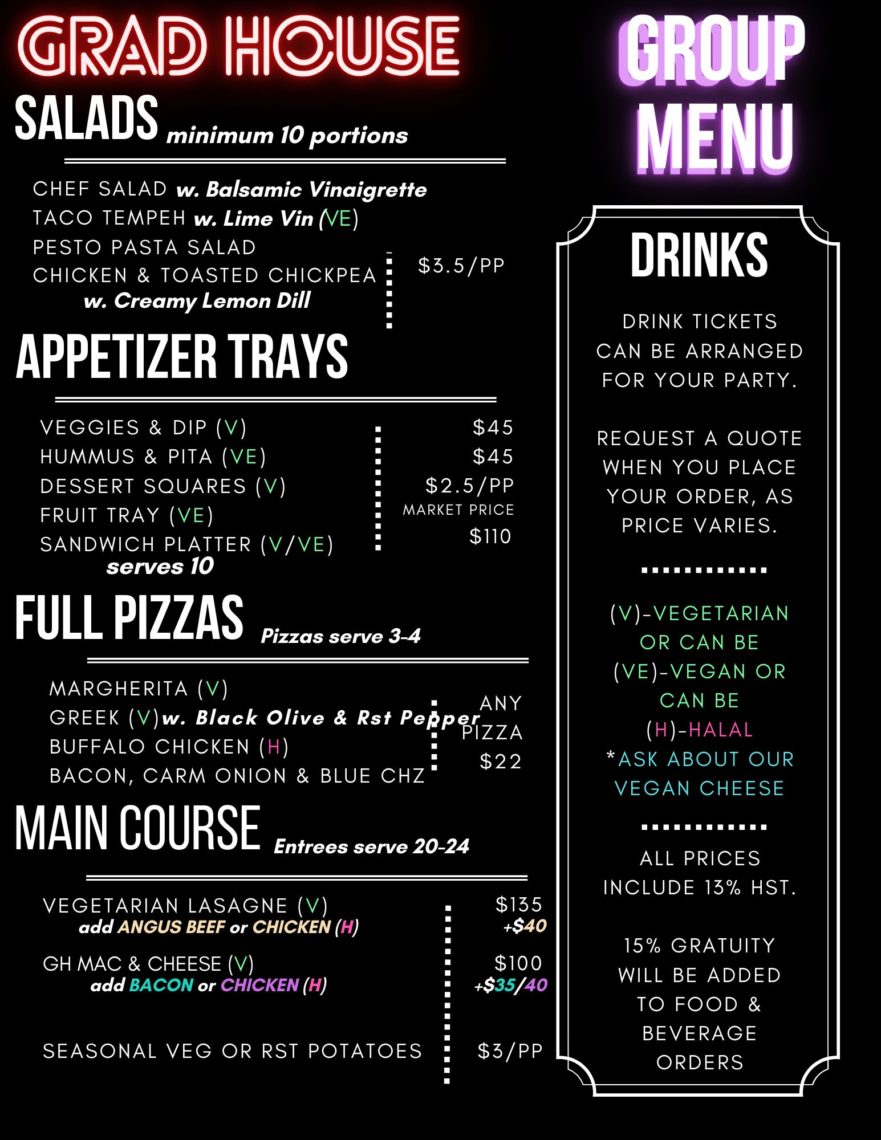FAQs
Services
If you are looking to opt-out of the GRT UPass:
You can only opt-out of the GRT Upass during the 100% tuition deadline which is typically during the first 2-3 weeks of the term. To find out more about when you can opt out, please visit the GRT UPass page on our website
If you are looking to opt-in to the GRT UPass:
You can opt-in to the GRT Upass at any time by going to the GRT UPass page on our website.
All the criteria for opt-in/out can be found on our GRT UPass page.
As per our contract with the GRT, we are only able to approve students who qualify for the opt-out reasons listed in the opt out criteria
As per our contract with the GRT, we are only able to approve students who qualify for the opt out reasons listed in the opt out criteria. Unfortunately, owning your own vehicle and having a parking pass on campus doesn’t qualify.
We are hoping to adjust this rule in our next contract renegotiations with the Grand River Transit for our next contract.
The easiest way to find out if you have paid for the GRT UPass, is to check your tuition breakdown on your Quest Account. The GRT UPass will be listed with the fee beside it.
Note: If the item is listed, but there is a $0.00 balance, you have not paid for this service and will need to opt in to access the GRT UPass.
There are a few troubleshooting questions to ask yourself to help figure out how to proceed?
1) Has a new term started, and if so, is there a charge on my Quest Account for the GRT UPass?
2) If not, you may need to opt into the GRT UPass.
3) If you do have the GRT UPass listed on your Quest account, the best thing to do is to contact the Watcard Office to see if they are able to check your Watcard.
Health & Dental Plan
There are only two different times you are able to opt in/out of the Health and Dental Benefits (this includes opting in your dependents as well). 1) your first term as a graduate student, or 2) in the beginning of the Fall* term each year
*Note: if you opt out during the school year, you are not able to opt back in until the following Fall term.
Important: There are NO exceptions to this rule.
You are only able to opt-in/opt out of the Health and Dental coverage during the 100% tuition deadline window. This is typically during the first 2-3 weeks of the term and will be listed on the StudentCare website.
Important: There are NO exceptions to this rule.
For any questions about starting a claim, reviewing your coverage, how and when you can opt in/out of the Health and Dental benefits, please reach out directly to Student Care using the Assistance Centre on their website.
*Note: The GSA is not able to review your claims, status, coverage or anything else regarding your Health and Dental Coverage. This can only be done through Student Care directly.
Legal Care
For any questions about how to start a Legal Aid claim, requesting information on Legal Aid, or talking to someone about a potential legal claim, you need to do so by going to the StudentCare Legal Protection page.
Click on “Request Support Here” to get connected with someone at Legal Aid.
*Note: The GSA is not able to initiate this process for you. This can only be done through the Legal Aid website, by you directly.
Advising & Support
We can assist with, but not limited to, the follow areas:
- Navigating supervisor relationships
- Campus work hour and co-op restrictions
- Academic petitions and appeals
- Finding appropriate support services on campus.
If your concern does not fall within the items listed above, we encourage you to reach out to Advising Coordinator (gsa-well@uwaterloo.ca) to guide you in the right direction.
Our expertise is with Policy 70 petitions, which has a standardized process across the university. We can provide one-on-one private consultations with students in person or virtually. In addition, we provide written email advice on drafting your petition and strategic planning if a formal or informal petition process would work best in your case.
Due to the unique nature of possible advising cases, you may sometimes be referred to other campus resources via the GSA. Any referral would first be approved by you, and the Advising Coordinator can be cc’d on email correspondence between you and the other campus resources as an added layer of support.
Community & Resources
Equity
The University has various resources for you to access in the event you need identity-based support.
The Office of Equity, Diversity, Inclusion, and Anti-Racism is a great first place to contact should you encounter equity-based issues on campus. Second, the Sexual Violence Prevention and Response Office is there to support any campus community members who have experienced or been impacted by sexual violence. Third, the Office of Indigenous Relations is a primary support system for Indigenous students, staff, and faculty. Finally, AccessAbility Services supports students with known and unknown disabilities/conditions/illnesses as well as students who are experiencing impacts from trauma to develop an individualized academic accommodation plan.
In addition, the GSA is always here should you need help connecting with these resources, have ideas about how the campus can be a more inclusive space, or wish to bring issues to the attention of the university administration.
Equity and Identity-based events that are led by or in partnership with the GSA will always be posted on our social media. Additionally, students receive a monthly newsletter from the GSA through their uwaterloo email that contains any events that are happening within the following weeks.
The GSA is currently working with campus partners to bring back the Black and Indigenous Student Grant. Please stay updated on GSA social media, newsletters, and the GSA website for more information.
Housing
We can assist with, but not limited to, the follow areas:
- Housing related questions including concerns related to on campus/off campus housing
- Living affordability
- Any other housing concern
The coordinator will provide assistance when possible and direct students to the appropriate services or resources when needed.
The Housing Coordinator cannot provide legal advice on lease documents or related issues. However, the coordinator can connect you with the appropriate resources and services available to graduate students.
The Housing Coordinator can provide some support to students looking for housing by sending over links to websites and housing groups that students often find housing on.
Labour
Teaching Assistants (TAs) are expected to dedicate 5-10 hours per week for a span of 15 weeks.
TA responsibilities include, but not limited to:
- Grading assignments
- Holding office hours for additional support
- Leading tutorials, proctoring exams
- Contributing to the assessment of quizzes, midterms, and final exams
Graduate Research Assistantship (RA) positions at UW are held by qualified students engaged in designated research duties under the guidance of faculty members.
RA responsibilities include, but not limited to,:
- Conducting research
- Writing grants
- Meeting with supervisors or research groups
- Running experiments
- Planning research activities
- Reviewing literature
Students in RA positions should adhere to a schedule as agreed upon with their supervisor, diligently completing assigned tasks and providing regular progress reports to their supervisor(s) on an agreed-upon schedule.
UW prioritizes the holistic development of its graduate student workers, fostering a culture of continuous learning and skill enrichment.
1) Workshop and Seminar Offerings:
Explore the Human Resources Professional Development Opportunities page to discover an extensive range of workshops and seminars. These sessions cover diverse topics, including effective teaching methodologies, research strategies, and broader professional skills. Delivered by experts in various fields, these workshops offer valuable insights and practical knowledge tailored to the unique needs of graduate student workers.
2) Online Course Catalog:
The SignMeUp Course Catalog serves as a centralized hub for accessing a multitude of professional development courses. These courses are designed to enhance both academic and practical skills, providing a flexible and accessible avenue for learning. Whether aiming to refine teaching techniques or acquire new research methodologies, graduate student workers can explore a rich selection of courses to suit their individual development goals.
In addition to workshops, the university offers travel grant programs for engagement, providing financial support for graduate student workers to participate in conferences, seminars, and other professional development events. This not only facilitates networking opportunities but also encourages the dissemination of research and academic contributions on a broader scale.
International Students
The University of Waterloo is conveniently served by two international airports. The first is Lester B. Pearson International Airport (YYZ), also known as Toronto Pearson International Airport. The second option is the Region of Waterloo International Airport (YFK).
Note: If international graduate students need to obtain their study permit upon arrival at an international airport, YYZ is the sole option available.
To plan your transportation from YYZ to the University of Waterloo, we recommend referring to the Student Success Office’s (SSO) article on arranging travel to Waterloo. Be sure to explore the embedded links within the article to help you plan your transit.
For “full-time” international graduate students, UPass is automatically loaded and activated on your WatCard. There’s no need for additional action.
For “part-time” international graduate students, UPass will be automatically deactivated. UPass is designed for “full-time” students according to the current agreement between the GSA and GRT. If you still need access to GRT services while part-time, you can purchase a GRT monthly pass online or in-person at the UW Turnkey Desk in the Student Life Centre at the University of Waterloo.
UPass on your WatCard is valid for GRT and ION transit within the Kitchener-Waterloo-Cambridge areas. To access GO Bus and Flix Bus services to Toronto or other cities, you’ll need to purchase their tickets through their respective websites, apps, or at the Turnkey desk within the Student Life Centre or Davis Centre (DC Library). Once you arrive in Toronto, you should use a Presto card for public transit. The Presto card is also compatible with GO Bus services from Waterloo to Toronto and other destinations.
You can purchase a Presto card and load fares exclusively at the Turnkey desk within the Student Life Centre. If you wish to enjoy student discounts on your Presto card, you must apply for them first on the provided website. You can reapply for these discounts when your card expires. Additionally, if you land at Toronto Pearson Airport, you have the option to purchase a Presto card at the airport.
For guidance on opening a Canadian bank account, please refer to the Student Success Office’s (SSO) article titled “Setting Up a Canadian Bank Account.”
A “promissory note” is a document that serves as proof of your ability to cover your tuition and fees for the upcoming term, allowing you to avoid paying the full amount by the “fees arranged” deadline. Common examples of promissory notes include letters of confirmation for research assistant (RA) positions, teaching assistant (TA) positions, and graduate research studentships (GRS).
Students should submit their promissory note before the “fees arranged” deadline, typically occurring in the last month of each term. It is strongly advised to submit the promissory note as soon as you receive it, as the Finance Office requires time to process the note and update your status on Quest.
For more detailed information, please consult the University of Waterloo’s article on promissory notes.
A breakdown of the roles and responsibilites, as well as payment differences between RA, TA and GRS can be found through this website.
International graduate students in Canada have fewer scholarship options compared to domestic students, and the available scholarships are often highly competitive due to limited quotas. Most of these scholarships are geared toward research-based international graduate students, with the exception of the Ontario Graduate Scholarship (OGS), which is open to both research-based and course-based international graduate students.
To discover these scholarship opportunities, we recommend utilizing the Graduate Studies and Postdoctoral Affairs’ (GSPA) graduate funding and awards database. This resource can help you explore the various scholarship options available to international graduate students.
You can check your mobile phone’s compatibility by visiting websites like kimovil or similar online resources. These tools can help you determine if your phone is compatible with the SIM card and telecom network in Canada.
The choice of mobile plans depends on your budget and preferences. In Canada, the primary telecom providers are known as the “Big 3,” which include Bell, Rogers, and Telus.
Many international graduate students opt for more budget-friendly options offered by the subsidiary brands of the Big 3. Here is a list of the primary telecom providers and their corresponding budget brands:
Owner | Budget Brands |
Bell | Virgin Mobile |
Lucky Mobile | |
Rogers | Fido |
Chatr | |
Telus | Koodo |
Public Mobile | |
Shaw | Freedom |
Governance
Board
They are responsible for high-level GSA management regarding policies, budget creation and strategic planning. Their actions always consider the student voice and the well-being of our members. They ensure that the GSA is operating according to needs of students in the UW community which makes it easy since they are made up of students just like yourself!
- Because your opinion matters!
- The motions you vote on will directly impact you
- It is important to hold the GSA accountable to the student voice
- To stay well informed about changes in your education experience at UW
Any graduate student at the University of Waterloo can serve as a director on the board. This includes full-time and part-time students, with either in-person or online programs
Directors are appointed at the Annual General Meeting (AGM), which typically occurs in early April of every year. Students who wish to run for a director position will be able to submit a nomination form during the nomination period, which will be open several months before the AGM.
Council
Council creates an avenue for communication between the students, the GSA and the administration at UW. Students are able to voice their concerns regarding any aspect of their educational experience to the GSA and UW admin to start improving on these aspects. In addition, it serves as hub to provide critical feedback to UW groups who are working on particular projects and would life student feedback.
Any graduate student at the University of Waterloo can serve as a director on the board, so long as there is not currently a representative from your department.
The GSA or your departmental GSA will hold elections throughout the year as positions become vacant. A large number of seats open the 1st month of every term so make sure to keep an eye out in emails and on social media for vacancies. Please see the Council Members List page on our website for the current list of vacancies.
AYou can find the contact info for your councilor on the Council Members List page on our website. It is always encouraged to reach out to your councilor for a comments, questions or concerns you might have regarding your educational experience.
Departmental GSAs
They are sub-groups of the GSA and are comprised of graduate students within the respective department.
Not all departments have dGSA’s, but all department can have dGSAs so long as a minimum of 3 graduate students within the department are willing to run it.
DGSAs are meant to provide support for students within their department. They can host department specific orientation events, social gatherings, fundraisers, coffee hours along with professional building opportunities for their students. DGSAs can also guide their students to the GSA when an issue falls outside the scope of the dGSA.
There is only one GSA at UW, and it oversees all graduate students, but there can be as many dGSAs as there are departments, and they oversee the graduate students within their respective departments.
Our Engagement Coordinator (gsa-engagement@uwaterloo.ca) holds a start of term meeting on a termly bases and invites representatives of each dGSA to attend. The same coordinator also sends dGSAs emails keeping them in the loop when appropriate.
While it is common for a departments councilor to also be part of their dGSA, it is not a prerequisite and there are councilors not involved in their respective dGSA.


